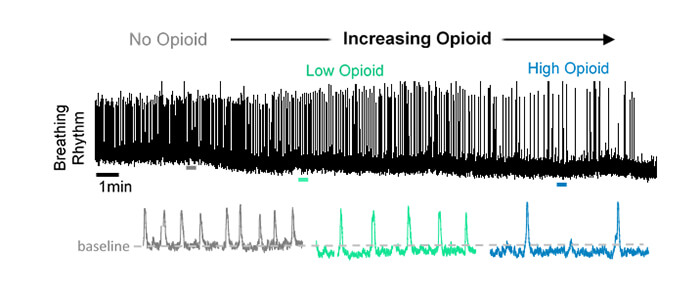Investigating how endogenous and exogenous opioids affect mechanisms of respiratory control
 The neurons that control breathing express opioid receptors that allow them to respond to endogenous endorphins, but also render them highly vulnerable to exogenous opioid-based analgesics and drugs of abuse. As a result, clinical and illicit use of opioids often lead to life-threatening, and difficult to predict, opioid-induced respiratory depression (OIRD). Our lab is working to understand how the natural and pharmacologic activation of opioid receptors affects breathing networks to inspire new therapeutic strategies to prevent or reverse OIRD without eliminating the beneficial pain-killing effects of these drugs.
The neurons that control breathing express opioid receptors that allow them to respond to endogenous endorphins, but also render them highly vulnerable to exogenous opioid-based analgesics and drugs of abuse. As a result, clinical and illicit use of opioids often lead to life-threatening, and difficult to predict, opioid-induced respiratory depression (OIRD). Our lab is working to understand how the natural and pharmacologic activation of opioid receptors affects breathing networks to inspire new therapeutic strategies to prevent or reverse OIRD without eliminating the beneficial pain-killing effects of these drugs.